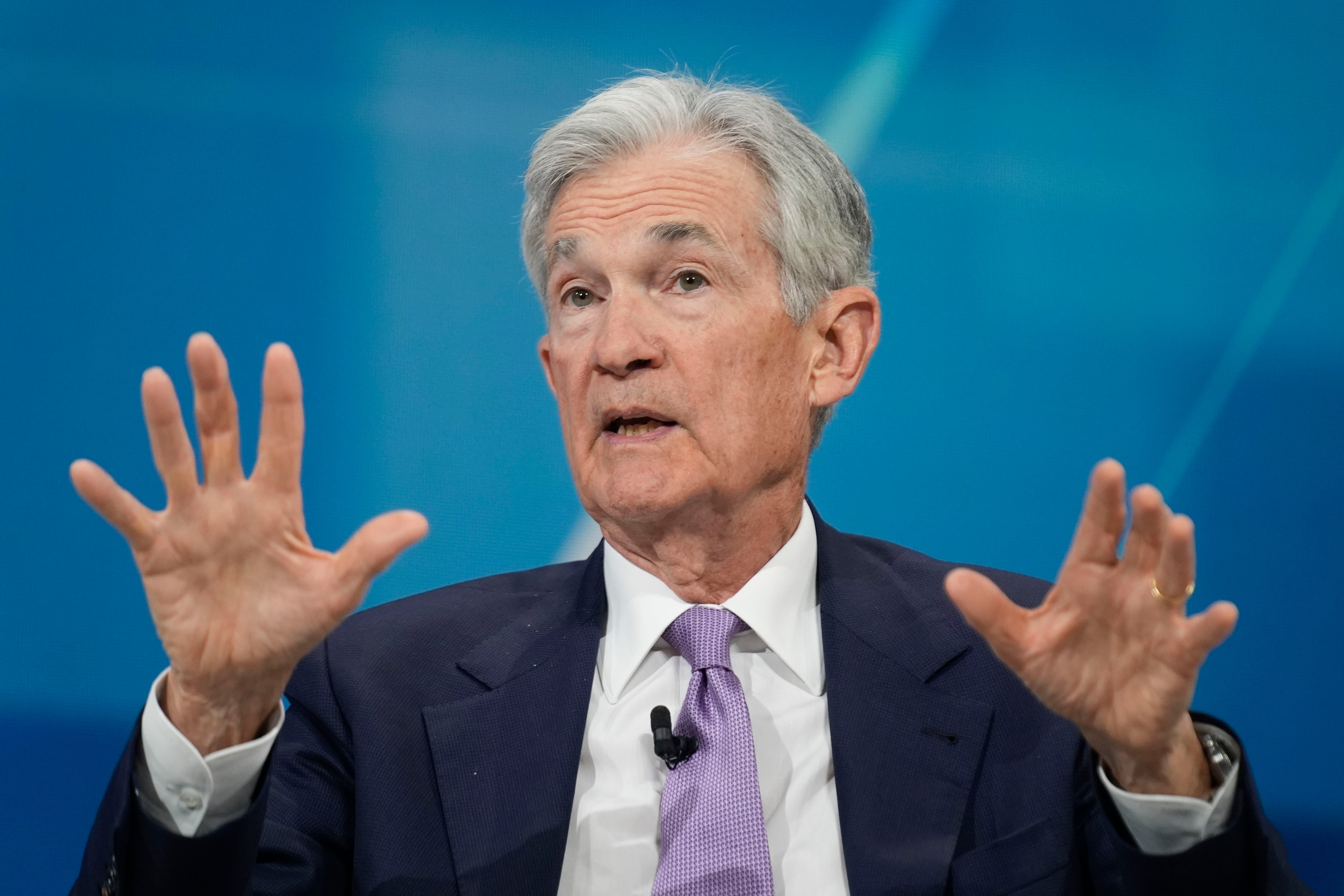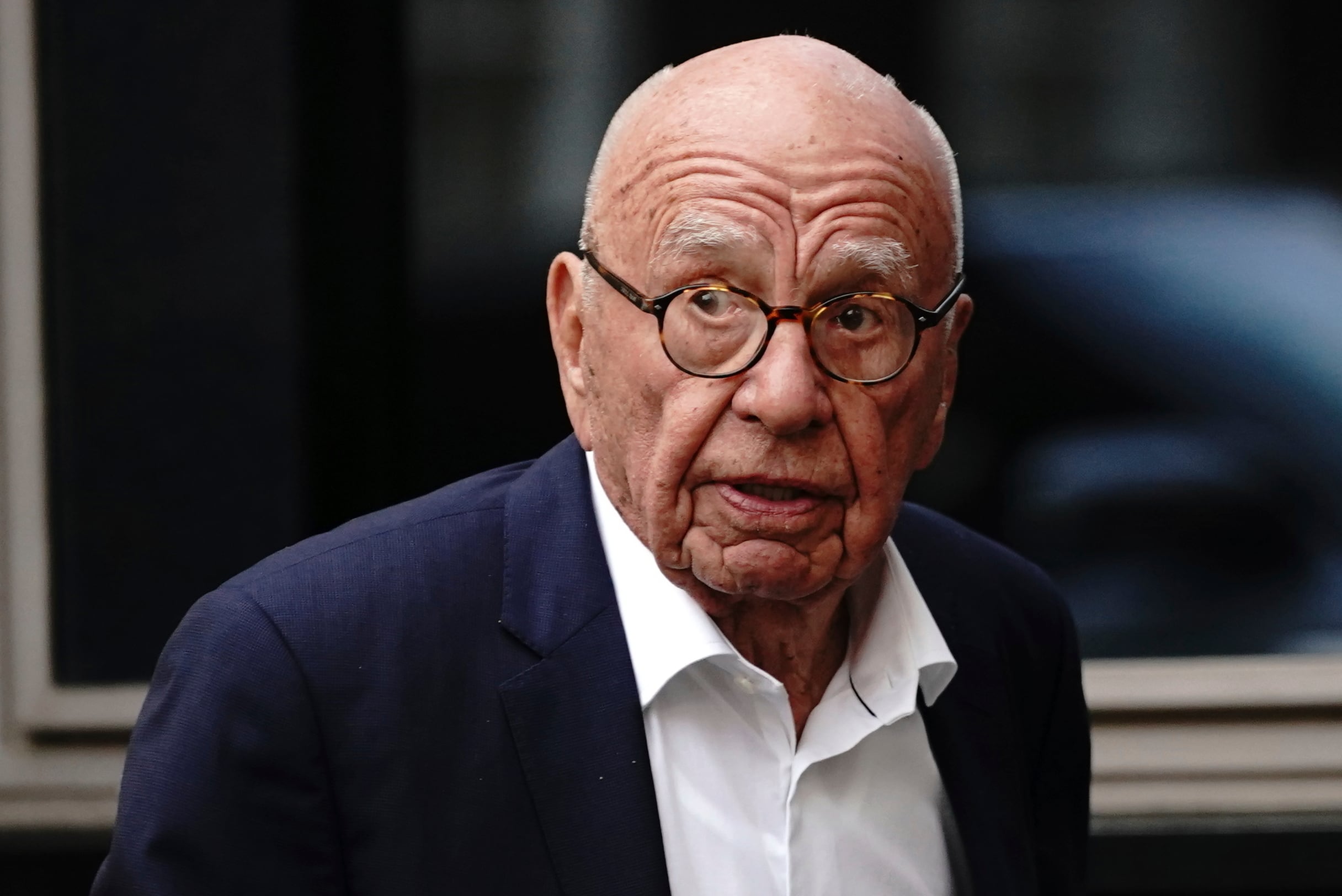These are bad times for Starbucks’s jet-setting new CEO and chairman, Brian Niccol. Niccol came in last month to knock the fading coffee giant back into shape, the way he did at Chipotle after it was savaged by poor management and a series of food-poisoning scandals. But Starbucks reported weaker than expected sales in its fiscal fourth quarter ending Sept. 29 and said it was suspending guidance for the next year while Niccol figures out what can be saved. Same-store sales fell by 6% in the U.S. as the number of cups of coffee (and new flavored drinks like Iced Apple Crisp Nondairy Cream Chai) fell 10%. Revenue for the quarter dropped 3% from a year earlier and adjusted earnings plummeted 24.5%. Results were worse in China, once seen as the next big growth area for the chain: China comparable store sales declined 14% in the quarter from a year earlier.
“We need to fundamentally change our strategy so we can get back to growth,” Niccol said Tuesday. He promised to slim down the menu, review pricing, change marketing strategies, and bring back the atmosphere that once drove Starbucks’s popularity. “We know they expect our stores to look and feel like the community coffeehouse they remember.”
But much of Starbucks’s margins come from drive-through-only locations and its digital rewards programs. Whatever Niccol does, it’s unlikely the company will return to its phenomenal pre-pandemic growth, which hit an annualized 14.8% over 20 years, as the Wall Street Journal reported. Still, shareholders seem to be giving Niccol room to maneuver. Share price is up 25% from the day he was appointed in August.
Watch Big Business This Week on Cheddar—and YouTube!
Elon’s World
Elon Musk registered the corporate names United States of America Inc. and Group America LLC with the Texas secretary of state’s office in early October, Forbes reported. What’s his game plan? Donald Trump has repeatedly said he’d give Musk a cabinet position to reduce government waste and excess regulation, and Musk has dedicated $75 million to his America PAC supporting Trump. It’s quite the flip-flop for a man who said he voted for Biden over Trump in 2020. Vice-presidential candidate Tim Walz called Musk Trump’s “running mate” (that was the nicest thing he said) and the Guardian’s Blake Montgomery says Musk wants a break from all the regulators who he feels stifle his businesses, from X to SpaceX. Musk himself has said he wants to use AI-powered tools to cut back government waste and reduce the number of people who keep government programs operating. But job cuts haven’t worked out so well for Musk. Remember when he fired 80% of Twitter employees, and in the process cut the platform’s value by more than 80%? • The Daily Show’s Michael Kosta has a theory: “He’s so rich, he bought Twitter just to drive it into the ground for his own personal pleasure, and now he’s thinking, Well, what if I did the same with America?” • Musk’s gotten the attention of the G-men with his headline-grabbing offer of a daily $1 million check to a random registered voter who signs his petition to support the First and Second Amendments. CNN reports the Justice Department’s public integrity section told Musk’s America PAC that the offer may be considered an illegal inducement to get people to register to vote. But it’s not clear how well Musk’s efforts are panning out for Trump. Many of the Musk-funded campaign outreach workers who were supposed to get the vote out for Trump are sitting in coffee shops collecting paychecks instead of knocking on doors, Reuters reported, citing data from the app the campaign workers use to track their work. • On Monday the studio that made “Blade Runner 2049″ sued Musk and Tesla for copyright infringement over an image used in the RoboTaxi rollout earlier this month. Alcon Entertainment says Trump and Tesla owe them about $100,000. Last week, director Alex Proyas accused the RoboTaxi event of stealing imagery from his 2004 film, “I, Robot.” • It was a good quarter for Tesla, as the company reported Q3 net income rose 17.3% over a year ago, and car sales rose for the first time this year, to 462,890. Tesla said it made $2.17 billion from July through September, as it resorted to price cuts and low-interest financing to boost sales of its aging vehicle lineup. Musk said he expects EV sales to grow 20% to 30% next year. Shares rose 13% after hours Wednesday. • Musk got a hand up from Mark Zuckerberg, who has suspended all Meta accounts that track the jets of the rich and famous. Meta said it stopped the trackers “given the risk of physical harm” that knowledge of their travel movements could bring to Zuckerberg and his fellow plutocrats. • Musk’s sometime über-rival, Uber CEO Dara Khosrowshahi, said Musk might get the RoboTaxi to scale in five years, and then, he said, owners of robotaxi and autonomous Teslas would likely partner their fleets with Uber. “Those owners, if they want to have maximum earnings on those fleets, will want to put those fleets on Uber,” he told the Hard Fork podcast.
Get Big Business This Week in your inbox every week—and read it before everybody else! Sign up today.
The Usual Suspects
- Fairytale Ending? Disney put a date on Bob Iger’s exit from his second run leading the House of Mouse: 2026. The first step was the appointment of former Morgan Stanley CEO Jamie Gorman as Disney chairman, and head of a soon-to-be-announced search committee. Iger served as CEO from 2002 to 2020, but Disney’s board sacked his successor Bob Chapek after 33 months and brought Iger back. Top candidates to replace Iger (as long as the board doesn’t extend his contract) are: television chief Dana Walden, theme parks boss Josh D’Amaro, ESPN chair Jimmy Pitaro, and studio head Alan Bergman.
- Prime Union Busting: Amazon told the National Labor Relations Board that its union-busting tactics are “protected by the First Amendment,” in a filing obtained by 404 Media. Amazon was responding to an NLRB complaint that the tactics it’s using to block unionization by delivery drivers broke the law. The complaint lists a series of union-busting statements by Amazon managers, including threats to terminate employees and promises of better benefits if they don’t unionize. In its reply, Amazon wrote: “All the statements Amazon allegedly made to employees were protected by the First Amendment to the U.S. Constitution.”
- It Doesn’t Get Better for Boeing: Even before the company’s 33,000 striking production workers rejected a new contract offer on Wednesday, the company turned in disastrous financial results this week. Boeing said it lost $6.7 billion in Q3, for a total of $8 billion since January, and has burned through $8.6 billion in cash this year. In a memo to staff, CEO Kelly Ortberg said Boeing must repair a broken culture, shrink itself and improve execution on new plane varieties. Boeing earlier said it planned to cut about 17,000 jobs, or 10% of its workforce. The strike is also taking a toll on Spirit AeroSystems, the Wichita, Kansas–based fuselage builder that Boeing spun off 20 years ago and is now repurchasing. Spirit says it will furlough 700 of the 12,000 people at its factory because of the Boeing strike. It’s built a “significant inventory” of fuselage parts since the Sept. 13 strike that halted production at Boeing’s Seattle assembly line. “It will take time to return Boeing to its former legacy, but with the right focus and culture, we can be an iconic company and aerospace leader once again,” Ortberg said. Despite the bad news, shares were actually up 1.4% over the past five days on Wednesday.
- That Old Frontier Spirit: After the Justice Department blocked JetBlue’s acquisition of Spirit Airlines in March, the troubled airline with its distinctive yellow jets is back in merger talks with its once and future fiancé Frontier Airlines. In 2022, Spirit and Frontier had reached a $2.9 billion buyout agreement that was annulled when JetBlue made a bigger offer. Spirit needs help if it is to stay aloft. It’s got $3.3 billion in debt, and a third of that comes due by the end of the year. The problem is that it hasn’t turned a profit since before Covid, and it keeps cutting routes and furloughing pilots. For Frontier, a successful merger would give it the heft to compete against the Big Three, Delta, United and American. Spirit shares jumped 46% on the news Wednesday.
The Short Stack
- We’re Number One! The International Monetary Fund said the U.S. is the world’s strongest and fastest-growing economy, as a surge of investment, much of it from the Biden Administration’s Inflation Reduction Act, pays off in higher productivity and wages. For 2025, the IMF projects the U.S. to grow 1.9%, versus 1.7% for all advanced economies and 3.1% for the global economy. The IMF said the global economy is on track for a soft landing as the pandemic-fueled slowdown and subsequent inflation spike come to an end. “The big global inflation wave is in retreat,” IMF chief Kristalina Georgieva said. “And this has been done without tipping the global economy into recession and large-scale job losses—something which many feared we would see again.”
- Plug It In! Stellantis plans to upend the electric vehicle business in 2026, when it expects to launch a demo fleet of EVs that use solid-state batteries from U.S. startup Factorial. Solid-state batteries cut fire risk and allow for lighter, lower-cost cars that can travel farther on a single charge. But the batteries are proving tough to develop at scale. The Chrysler parent said the first new EVs will be Dodge Chargers.
- Don’t Mess With Europe: The EU’s incoming antitrust commissioner says she won’t be letting up on Big Tech, after Apple, Google, Microsoft and others were hit with billion-dollar-plus fines in Europe. “I will push for vigorous enforcement,” Teresa Ribera told EU lawmakers. She’s currently Spain’s minister for ecological transition and demographic challenge.
- Harsh Reality: Apple’s mixed-reality headset, the Vision Pro, is flailing in the market, and the company has already scaled back production and may abandon the product altogether by the end of the year, The Information reported, citing component suppliers. Part of the problem: price. Apple’s Vision Pro starts at $3,500, while Meta’s Quest 3 sells for about $500.
- Rupert Is Not Perplexed: Media mogul Rupert Murdoch, the 93-year old Australian-born inspiration for Succession’s Logan Roy, has sued Perplexity, accusing the AI-driven search engine of a “brazen scheme” to rip off the journalism of Murdoch’s media empire, including The Wall Street Journal and the New York Post, “diverting customers and critical revenue.” The lawsuit claims Perplexity is harming the brands by generating answers with false information based on content from the Post. (Hmmm…) On Wednesday, Perplexity CEO Aravind Srinavas said he wants to reach revenue-sharing agreements with news publishers. He was speaking at a Wall Street Journal event.
- Remember Denny’s? Better go now, because the 70-year-old round-the-clock diner chain is closing 150 locations, or about 10 percent of its restaurants, in 2025. Denny’s says they’re mostly in locations that have aged out of usefulness as neighborhoods have changed. On Tuesday, Denny’s reported its fifth straight quarter of year-over-year declines in same-store sales. Shares of Denny’s fell nearly 18% after the news.
Home Sweet Home
Despite the Fed’s half-point cut in interest rates last month, home prices are still rising, mortgages are still pricy, and even with 1.4 million more homes on the market in September compared with a year ago, sales of existing homes fell 1% to a 14-year low. “It will take more rate cuts and more options to bring buyers back,” Jennifer Lee, a senior economist at BMO Capital Market, told Reuters.
The sales drop may have partially reflected the one-to-two month lag between getting a mortgage and closing on a home sale, so it’s likely the data doesn’t yet account for the lower interest rates. But still, mortgage rates fell to about 6.08% on average after the Fed cut interest rates, but now they are up to 6.57% for a 30-year fixed mortgage. The big thing holding back home sales: The average rate on existing mortgages is 4%, leaving prospective homebuyers reluctant to give up their low rates. Some other data points may help explain the situation: Most of the homes sold last month were under $500,000, and houses were sitting on the market for 28 days in September, a week more than a year ago.
In its October report, Freddie Mac, the government-sponsored mortgage giant, said the housing market is showing “some signs of thawing” with the decline in mortgage rates and a slowdown in home price appreciation. And while demand is increasingly being driven by first-time homeowners eager to have their own place, they’re facing “headwinds” of affordability, supply, and the overall economy.
Peter S. Green is a veteran reporter and editor who has spent more than two decades covering business and finance from Eastern Europe to New York City, and has worked for Bloomberg News, The New York Post, The New York Times and The Messenger. He lives in New York City and is always looking for the next big story.













